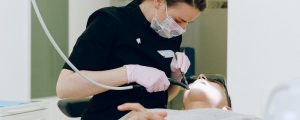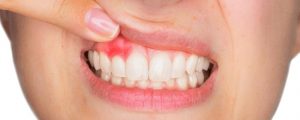Extracting a tooth is not a pleasant experience. The only thing that makes tooth extraction worth all the trouble, pain, swelling, and discomfort is the pleasure of eating guilt-free ice-cream! However, there are more important things you should do after having a tooth extracted. Here are seven of them.
Get Biting
As soon as you get your tooth extracted, your dentist might ask you to place a gauge pad on the extracted area and bite on it for about 30-45 minutes. The pressure helps the blood clot in the extracted area so that the healing process can begin afterward. You may have to repeat the process several times before the clot forms.
Protect the Clot
The clot is the most important part of your healing, and once it forms, you have to make sure you do not disturb and break the clot. For the first 48 hours, avoid rinsing your mouth too hard, drinking anything through straws, smoking or disrupting the clot with alcohol.
Instead, you can rinse your mouth in a gentle way with a warm salt water solution after the first 24 hours of extraction. You can rinse your mouth about 3-4 times a day, but don’t do any vigorous exercise that would increase blood pressure and induce bleeding.
Proper Sleeping Position
Now that you know how to protect your clot from giving away to bleeding, you have to maintain it for a few more days. When you’re going to sleep, for instance, don’t lie down flat on your pillow. That may induce blood flow and prolong bleeding in the extraction. Keep your head propped up on a pillow or two when you lie down so that the clot stays put and the bleeding stops soon enough.
Proper Diet
Soon after the extraction, follow a soft diet. Speak to your dentist and find out which foods are best for the healing process. You may have to follow a liquid diet with nutrition drinks and milkshakes for the first 24 hours.
Make sure you drink plenty of water and keep your body well hydrated. You would have lost a lot of body fluid during your surgery, and it’s important to restore fluids.
For the first few days after your surgery, you can move onto solid foods, but you still need to eat only soft and nutritious foods. Bite and chew your food on the side opposite as your extracted area would still be a little fragile. Start chewing on both sides, only when you’re comfortable with it. Don’t hesitate to take some time if you need it.
Clean Your Mouth
Despite what people may tell you, you have to clean your mouth every day. To get rid of the unpleasant aftertaste and bad breath after an extraction, it’s important that you rinse your mouth. Don’t disturb the extracted area for the remainder of the day, but clean your tongue and teeth.
On the second day, you can start cleaning the extracted area. However, be gentle as the area would be sensitive. Rinse your teeth with lukewarm salt water after every meal to keep the area clean from residues and food particles. While choosing your toothbrush, toothpaste, and other oral health products, make sure that they have the American Dental Association’s approval.
Be Prepared for the Pain
Once you get your teeth extracted, you should know that the pain and discomfort are inevitable. The best thing you can do is to prepare for what’s coming.
Your teeth may begin to ache and show signs of swelling. It often happens between the first 24 to 48 hours of your surgery. If there’s swelling, put an ice pack on it to curb the swelling. Don’t do anything that might disturb the clot and induce bleeding. If your dentist has prescribed any painkillers, make sure you take them as and when recommended.
If your pain does not subside within two days, there might be some complications like infections, an external particle in the extraction area, a jawbone fracture, muscle spasms, sinus problems, etc.
Another Dental Visit
About three to four days after your surgery, make an appointment with your dentist, just to be sure. Even if you seem to have come out from the surgery without any problems, it’s best to consult your dentist again for chances of future problems like further pain, swelling, or dental infections. Sometimes, dentists may have added a few stitches. In that case, you might have to get them removed when the time comes.
Have you ever gotten teeth extracted? What did your dentist ask you to do? How much ice-cream were you allowed to binge? Share your experience with us in the comments below.




